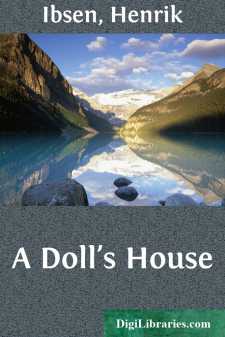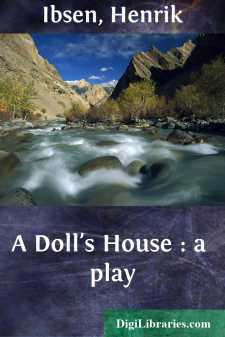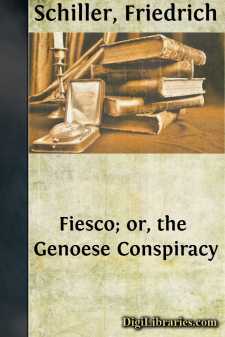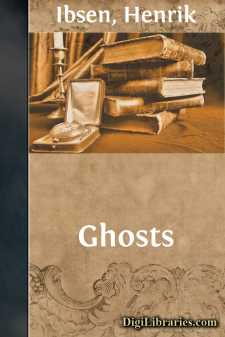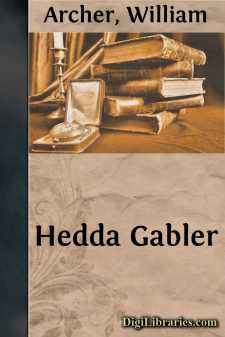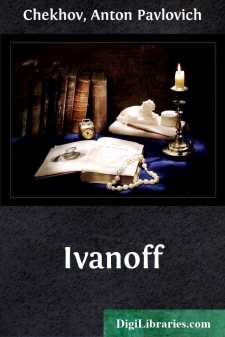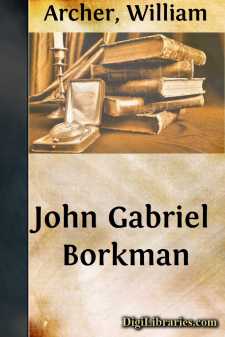Drama
- American 43
- Ancient, Classical & Medieval 45
- Asian 7
- Caribbean & Latin American 2
- Continental European
- English, Irish, Scottish, Welsh 91
- General 105
- Middle Eastern 1
- Religious & Liturgical 1
- Shakespeare 1
Continental European Books
Sort by:
by:
Henrik Ibsen
A DOLL'S HOUSE ACT I (SCENE.—A room furnished comfortably and tastefully, but not extravagantly. At the back, a door to the right leads to the entrance-hall, another to the left leads to Helmer's study. Between the doors stands a piano. In the middle of the left-hand wall is a door, and beyond it a window. Near the window are a round table, armchairs and a small sofa. In the right-hand...
more...
by:
Henrik Ibsen
ACT I [SCENE.--A room furnished comfortably and tastefully, but not extravagantly. At the back, a door to the right leads to the entrance-hall, another to the left leads to Helmer's study. Between the doors stands a piano. In the middle of the left-hand wall is a door, and beyond it a window. Near the window are a round table, arm-chairs and a small sofa. In the right-hand wall, at the farther...
more...
by:
Henrik Ibsen
ACT I (SCENE.—DR. STOCKMANN'S sitting-room. It is evening. The room is plainly but neatly appointed and furnished. In the right-hand wall are two doors; the farther leads out to the hall, the nearer to the doctor's study. In the left-hand wall, opposite the door leading to the hall, is a door leading to the other rooms occupied by the family. In the middle of the same wall stands the stove,...
more...
ACT I.SCENE I.A Saloon in FIESCO'S House. The distant sound of dancing andmusic is heard. LEONORA, masked, and attended by ROSA and ARABELLA, enters hastily. LEONORA (tears off her mask). No more! Not another word! 'Tis as clear as day! (Throwing herself in a chair.) This quite overcomes me—— ARABELLA. My lady! LEONORA (rising.) What, before my eyes! with a notorious coquette! In presence...
more...
by:
Aylmer Maude
CHARACTERS LEONÍD FYÓDORITCH ZVEZDÍNTSEF. A retired Lieutenant of the Horse Guards. Owner of more than 60,000 acres of land in various provinces. A fresh-looking, bland, agreeable gentleman of 60. Believes in Spiritualism, and likes to astonish people with his wonderful stories. ANNA PÁVLOVNA ZVEZDÍNTSEVA. Wife of LeonÃd. Stout; pretends to be young; quite taken up with the conventionalities...
more...
by:
Henrik Ibsen
ACT I (SCENE.—A large room looking upon a garden door in the left-hand wall, and two in the right. In the middle of the room, a round table with chairs set about it, and books, magazines and newspapers upon it. In the foreground on the left, a window, by which is a small sofa with a work-table in front of it. At the back the room opens into a conservatory rather smaller than the room. From the...
more...
ACT I. Scene I.—ELSINORE. A Platform before the Castle. Night. Francisco on his post. Enter to him Bernardo, L.H. Ber. Who's there? Fran. (R.) Nay, answer me: stand, and unfold yourself. Ber. Long live the king! Fran. Bernardo? Ber. He. Fran. You come most carefully upon your hour. Ber. 'Tis now struck twelve; get thee to bed, Francisco. Fran. For this relief much thanks: [Crosses to L.]...
more...
by:
William Archer
From Munich, on June 29, 1890, Ibsen wrote to the Swedish poet, Count Carl Soilsky: "Our intention has all along been to spend the summer in the Tyrol again. But circumstances are against our doing so. I am at present engaged upon a new dramatic work, which for several reasons has made very slow progress, and I do not leave Munich until I can take with me the completed first draft. There is little...
more...
ACT I The garden of IVANOFF'S country place. On the left is a terrace and the facade of the house. One window is open. Below the terrace is a broad semicircular lawn, from which paths lead to right and left into a garden. On the right are several garden benches and tables. A lamp is burning on one of the tables. It is evening. As the curtain rises sounds of the piano and violoncello are heard....
more...
by:
William Archer
INTRODUCTION.* The anecdotic history of John Gabriel Borkman is even scantier than that of Little Eyolf. It is true that two mentions of it occur in Ibsen's letters, but they throw no light whatever upon its spiritual antecedents. Writing to George Brandes from Christiania, on April 24, 1896, Ibsen says: "In your last letter you make the suggestion that I should visit London. If I knew enough...
more...


